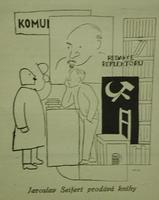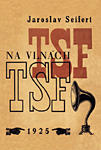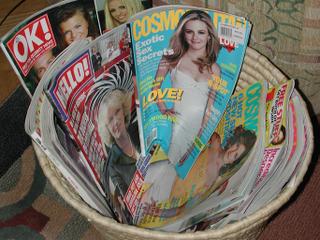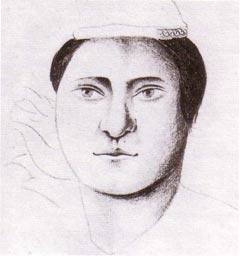Several of my comrades here have probably heard more than enough about my glasses, so perhaps they will prefer to skip this account. Other readers, however, may be curious how one goes about making at least one type of major purchase in Prague, and what can befall one.
Prior to coming to the Czech Republic, I made sure to get my eyes examined and bought new lenses for my glasses, since (as I have learned to stress to optical personnel) as an art historian I really have to have clear vision at all distances. When I am not reading, I am probably staring at a computer screen or looking at projected images, the latter of which may be across a vast auditorium. Being what the Czechs would delicately refer to as a “starší studentka” (as opposed to the sort young enough to get a student-rate transit pass), I require a more complicated prescription than was once the case.
And, having had various experiences in the course of my life that involved loss of glasses (it is not really that much fun going to night-time parties wearing dark glasses, unless, I suppose, a person doesn’t really care about seeing what the other guests look like), I brought along my old glasses and the new prescription with the idea that if I had these along I was really unlikely to need them for anything.
Alas, I had only been here a very short time—I suppose two or three weeks—when I managed to break my glasses. I don’t know what caused them to become so suicidally inclined, but one minute they were entangled in the shirt I was removing and the next they had flown to the bathroom floor, probably hitting everything in the bathroom on their way down. The situation did not look good. I had a nasty feeling that nothing short of a roll of electrical tape would really put the pieces back together again.
And, indeed, when I took them in to a shop that had done a repair on them for free last summer, the optician informed me that they were beyond all hope. We commenced picking out new frames, which at least was more pleasant than had been the case in Berkeley. True, initially the optician tried to steer me towards hideous little trendy glasses, and I realized that I did not know the Czech words for shapes like “rectangle” and “oval,” but I eventually got it across that I was not about to wear anything on my face that involved black rectangles or anything like them, and certainly not anything that looked like the horrible things I had to wear before I was eleven and got nice octagonal glasses (one of the pairs that got lost). Once that was understood, I saw I had a suitable choice of very acceptable frames.
I produced my prescription and inquired whether it was understandable—after all, I don’t understand it myself, so I would not be surprised if a Czech optician didn’t either. He assured me that it was perfectly understandable, and began to tell me all about my diopters, which I would not have followed any better in English than I did in Czech. I did have a nagging sensation that I ought to query him in detail about his understanding of my prescription, but felt that my vocabulary in this area was insufficient, so I settled for stressing that it is very important for art historians to be able to read easily, as we do it constantly. Still, I had that nervous feeling that something might go wrong with that prescription. I do often have prophetic intuitions of this sort, but it is sometimes hard to distinguish them from ordinary everyday paranoia (or groundless optimism, as the case may be).
We spent a good long time going over details relating to the non-glare coating, the manner in which the lenses were to be made (another of those things that seemed all too technical for me), and the payment scheme. Finally I departed, feeling generally pleased with my ability to negotiate a complex transaction in Czech, but not looking forward to suffering through a week or more of reading blurry stuff and taking off my glasses every time I had to look at the change in my wallet. (There is nothing like removing one’s glasses and peering into a coin purse at close range to foster feelings of gross incompetence when the clerk has asked if one has a 50-heller piece and there is a long line is waiting. We can only rejoice that smaller denominations are no longer legal tender and I can put my collection of these to use in some sort of collage.)
A week later I received the welcome SMS that my glasses were ready. Ah, I thought, these people are efficient; it takes UC Berkeley and Kaiser Permanente at least two weeks. I went in. We agreed that they looked spiffy. I read off all the little numbers on the eye chart correctly. And then I glanced down at the desk. Um… it seemed to be a complete blur. What on earth did those papers say? This was reminding me of the shock of getting my dark glasses and realizing that it had not been a good idea to get only the long-distance prescription. (Driving down the highway in dark glasses: what speed does the speedometer say? How much gas is left in the tank? How long has that warning light been on about the fuel injection system? What’s the number of the interstate on that map?)
My foreboding about the prescription had been all too well-founded; the optician had failed to notice that it was for progressive lenses. He looked aghast. We examined the prescription again. We did more calculations. There was further discussion of my diopters and the thickness of the lenses at various points of the final product. It was going to be another two weeks before I could read properly. There were further complications that I will refrain from describing. We withdrew into a more neutral discussion of Czech poetry; was I familiar with a fifteenth-century Czech poet (whose name I have now completely forgotten) whose work is really beautiful? Well, actually I don’t normally read Czech poetry, even if it is in modern Czech. I had just bought a bilingual edition of Mácha’s
Maj and noted that it had many archaic spellings.

The optician observed that he also very much liked an early twentieth-century poet who had died young of TB, but whose name was escaping him. Said poet had been a communist but had had good things to say about Masaryk. This seemed more in my realm. I inquired whether he was thinking of Wolker. (I had no idea what he had died of, but I knew it was an untimely death.) Yes, exactly! Wolker, a wonderful poet despite being a communist. I said that a great many poets of that generation had been communists, as I couldn’t in fact think of any interwar Czech poets who hadn’t been. (There must have been some, but they have not made their way into my research.) My mind immediately fastened upon Hoffmeister’s cartoon of Seifert at work at the communist bookstore.

Perhaps this was because along with
Maj I had gotten a bilingual edition of Seifert and Teige’s
Na vlnach TSF.

Then again, perhaps not. Hoffmeister’s cartoons tend to drift through my mind frequently, along with other fun items from the early issues of Rozpravy Aventina. No doubt one of these days I should propose a conference paper on Hoffmeister.
In any case, I went off to spend another couple of weeks not feeling much like reading blurry stuff, although I did discover that the situation improved if I pulled my glasses way down my nose. I don’t think this looked very attractive, but it was functional. We could say the same thing about a lot of functionalist architecture, but I won’t get into that topic because it relates more to Brno than to Prague. Suffice it to say that I don’t know what Gočar was thinking of when he abandoned cubist architecture for functionalism.
Well, to return to my topic, this afternoon I went in and got the revised glasses. After spending a month or so looking at various blurry stuff, it is hard to know whether I have now got exactly what I ought to have. The computer screen is not as clear as I might like. On the other hand, it always takes the eyes a few days to adjust to a change of lens, so who knows. But, as if my glasses had not been expensive enough (a topic I have refrained from elaborating upon), it turns out that glasses cases cost extra here rather than being part of the package. Had I realized this, I think I would have been content with the cardboard box, as I don’t really see a need to spend over 400Kč on a case that will only get occasional use. But, as they say, live and learn. Tomorrow I can go to the archive and re-examine the documents relating to Štyrský’s estate (last year I took a more cursory look at these just before the archive closed for the summer), and possibly even embark on the daunting task of reading Nezval’s diaries. At least, I’m assuming that these will have arrived on time (I ordered them last Thursday). If they haven’t, I guess I’ll head over to the Městská knihovna and try to figure out the procedure for ordering books that aren’t in plain view. It appears that Bohuslav Brouk’s various psychological tomes were not deemed of sufficient daily interest to put on the shelf next to the books about AIDS and sex instruction (or whatever was inhabiting the shelf in question). I hope this doesn’t mean that Brouk’s writing is unusually dense; my only experience with his style was when I glanced through his article on (Nazi) German perversion. This was one of those articles that I really saw no reason to spend a lot of time struggling through, especially as I thought it was a bit simplistic (that favorite word of many of my students, who imagine it to be a synonym for simple) to argue that Naziism was the result of suppressed or even not-so-suppressed homosexuality. But… à chacun son gout.
Labels: Czech, Prague










